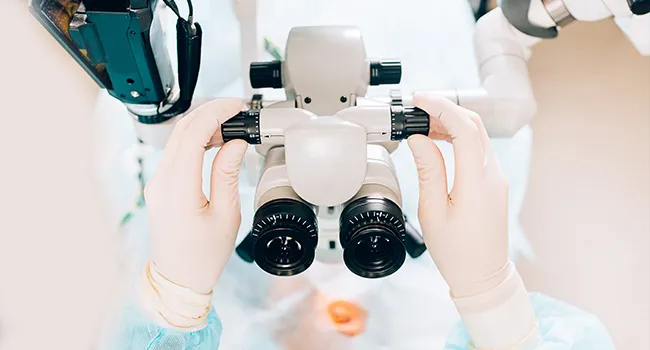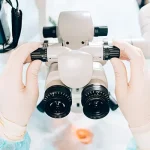If you have been considering opting for refractive eye surgery but feel overwhelmed by the idea, then you should probably read on. This article sheds light on the nitty-gritty of the same, so you can have an overview of refractive surgery and its types.
Used to correct refractive errors, these types of procedures ensure they’re fixed permanently in a safe and reliable way with rare complications.
Types of refractive surgery
- LASIK (laser in-situ keratomileusis)
In this, a laser is used to create a flap of tissue in the cornea. Then a second laser is used to reshape the cornea and the flap is replaced.
LASIK is known to improve vision to 20/20 in most patients and can be used to correct myopia, hyperopia, or astigmatism. If you have had a stable prescription in the past year, no conflicting medical conditions and your screening exams are free of irregularities and abnormalities; your ophthalmologist will most likely suggest LASIK.
- Photorefractive keratectomy (PRK)
Photorefractive Keratectomy is performed with a similar excimer laser as LASIK and it can correct myopia (mild to moderate nearsightedness). In this, the most superficial layer of the cornea called the epithelium is removed and the laser is used to reshape the cornea. The surgery lasts only for a few minutes but the eyes take a few weeks to heal completely.
- Radial keratotomy
Used to correct mild myopia, Radial Keratotomy involves making small incisions in the cornea using a diamond scalpel. As a result, the centre of the cornea is flattened which in turn reduces refraction. Before LASIK, this was the most widely used type of refractive surgery but the incisions made took a few weeks to heal.
- Automated lamellar keratoplasty (ALK)
ALK is used to correct severe myopia and hyperopia. The flap from the front of the cornea is cut and folded to the side. A thin slice of tissue is removed so that the central cornea is flattened, after which the flap is placed back in place. In the subsequent weeks, the eye heals and the flap reattaches without stitches.
- Laser thermal keratoplasty (LTK)
This laser refractive surgery can eliminate (or reduce) farsightedness in patients over 40 years of age. It shrinks the collagen and flattens the cornea with the help of a holmium laser to correct the vision.
- Conductive keratoplasty (CK)
This type of refractive surgery uses heat emitted from low-level radio waves. The heat shrinks the collagen to change the shape of the cornea by creating a tight band around it. This surgery is performed if the patient is over 40 years old and has mild or moderate hyperopia.
- Intracorneal ring (Intacs)
Intacs doesn’t use lasers as the surgeon corrects nearsightedness and astigmatism by placing two crescent-shaped plastic rings in the outer edge of the cornea so they can flatten it.
- SMILE
Short for Small Incision Lenticule Extraction, SMILE is a type of refractive surgery that is used to treat conditions like myopia, hyperopia, presbyopia, and astigmatism. It’s effects are quite similar to LASIK.
Why Centre for Sight?
At Centre for Sight, we pride ourselves on being the leading chain of eye care hospitals in India. We have a presence in several major Tier 1 and tier 2 cities, with 50+ centres across the country. We have highly advanced and experienced medical professionals and excellent infrastructure to ensure that your vision can be restored. If you need refractive surgery, you can book an appointment at one of our hospitals and get your vision corrected without any worries.
Article: 7 Types of Refractive Surgery You Should Know About
Author: CFS Editorial Team | Sept 14 2020 | UPDATED 02:00 IST
*The views expressed here are solely those of the author in his privatecapacity and do not in any way represent the views of Centre for Sight.





